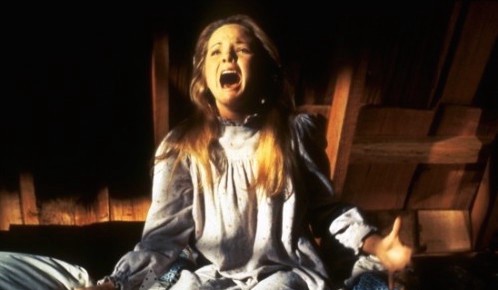
A few weeks ago, our pastor asked me to share a story or memory about my sister during her memorial service. I managed to pull myself together enough to share a story that took place at my grandfather’s funeral many years earlier. I’ve had people ask me about it, and share with me how much they enjoyed the story. So, in the words of Paul Harvey (who happened to be one of my grandfather’s favorites) here is “the rest of the story”.
September 12, 1981 was the day my childhood abruptly ended. It began as an almost idyllic Autumn Saturday. My mom had taken us to Stone Mountain Park for the Yellow Daisy Festival, and we had spent the morning browsing through rows of handmade crafts and funnel cakes.
When we got back to the house, my mom dropped us off the swim while she went grocery shopping. I was thirteen years old that day, but by the time the sun went down I felt about sixty. The sibling dynamic in my family had always been skewed because my older sister had been born two months early, leaving her with disabilities. I functioned as the oldest sibling, even though it was never acknowledged formally. On this fateful day, my sister Mary Beth had decided to stay inside while my younger brother and I swam. After about thirty minutes of enjoying our typical pool antics—cannon balls from the side, diving for rings, contests for holding one’s breath underwater, etc.—my sister appeared at the back door looking as if she’d seen a ghost.
“Some lady just called,” she announced in an unrecognizable tone, “and said that she’d ‘heard in passing’ that Grandpa died.” She looked as if she’d seen a ghost.
I swam to the side of the pool. “Grandpa Callaway?”
She swallowed hard, still pale and shell-shocked. “No. She said it was Grandpa Walter.” But this simply couldn’t be possible. My grandpa was a doctor who still saw patients every day. He was full of life. I’d spend the weekend before with them in the mountains and he’d been perfectly fine.
I was out of the pool and to the door within seconds. I didn’t even bother to completely dry off before rushing to the phone hanging on the wall of the kitchen. I punched in the numbers to my grandparent’s rambling old farmhouse in the mountains from memory. As the phone rang, I tried to think of a reason for calling. I surely couldn’t explain to Grandpa the real reason for my call. But he didn’t answer the phone that day and neither did my grandmother. At that moment, I just knew. The woman on the phone had been right. With my mom gone, I had to become the adult and hold things together until she got home and could find out what had happened. Once you take on the role of adult, there’s no going back to the innocence of childhood. I discovered this on that day.
The funeral was held at the church my grandparents had attended for years-a white frame building constructed in the early 1900s. It was traditional in every sense of the word. The day of the funeral, the place was packed. People stood along the sides and the back of the sanctuary, and people even stretched out the doors into the churchyard. After all, Doc Walter had treated most everyone in the valley at one time or another, having been the only doctor around for miles. People came out in droves to pay their last respects to the Doc.
My sister, Mary Beth, taped her favorite television programs years before anyone had ever thought to make VCRs. Armed with a Kmart cassette tape recorder, my sister would record an hour long program—the first half on side one of the cassette tape, and the rest of the show on side two. Of course, this meant you couldn’t talk, cough, or clear your throat during the entire program without suffering her withering stare and flapping hands to silence you. But come hell or high water, those shows were going to be taped. Mary Beth also traveled everywhere with her trusty tape recorder. So it was no surprise to anyone who knew her that she had it clutched in her arms when we walked into the church for the funeral.
Mary Beth had decided that we needed to record the funeral-partly because my grandmother was too distraught to attend. This task was delegated to my father—a man who has the biggest heart and the best of intentions, but doesn’t handle stress all that well. He scurried around through the packed room and placed the Kmart recorder on the top of the organ. He asked the organist, who was rather elderly, if she would please be kind enough to push the “record” button and the “play” button down when the service began. She nodded her agreement as she pounded out the hymns that the family had requested be played.
Everything seemed to be going according to plan until the organist reached up and hit the “play” button only—just as the family had been seated. Mary Beth had placed the cassette in the recorder on the “B” side, which contained the second half of a Little House on the Prairie episode that she’d previously recorded. She must have really wanted to have a recording of Grandpa’s funeral pretty badly if she was willing to tape over that show—it was her absolute favorite.
When the blood curdling screaming started , no one else in the church knew what was happening. They simply looked around the church, bewildered by the terrified sounding young girl’s voice screaming, “Pa, help me! Help me Pa, I’m blind. I can’t see!”

Photo credit NBC
But we knew! We knew the minute we heard the voice of Melissa Sue Anderson, who portrayed Mary Ingalls on the popular show—the organist had hit only play rather than both record and play simultaneously.
Try to imagine a quiet, simple, mountain funeral suddenly and most unexpectedly, filled with the loud screams of a panicked young woman. You could see people mouthing the word, “Pa”—attempting in vain to discover who this “Pa” person was. Surprised and startled looks spurred my mother to jab Dad in the ribs, and he promptly pushed and shoved his way as gently as possible through the people obstructing his path to the organ.
As unobtrusively as possible, he pushed the “off” button on the tape recorder and weaved his way back to the front row of the church—only to find his oldest daughter hyperventilating and flapping her hands wildly, and his wife fixing him with her penetrating gaze.
“You turned it off,” my mother informed Dad. “Now it isn’t recording the funeral at all.”
The look on his face was a mixture of bewilderment, incredulity and hostility. I could literally see the gears of his mind churning in circles as he realized that Mom expected him to find a way back through the throng of mourners to turn the recorder back on—the correct way this time, in order to spare any further outbursts from Mary Ingalls. But he got up and did just that. And now you know the rest of the story.

Linda Walter Johnston
How your Grandpa would have loved it! I can hear him laughing his wonderful belly laugh right now!
melissamiles1
I agree! He had a great sense of humor.